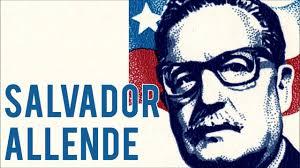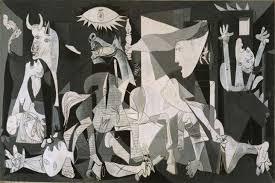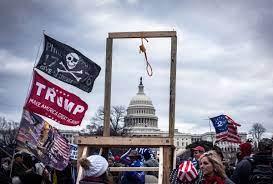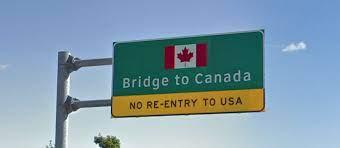
Isabel Allende’s Long Petal of the Sea is a meaty, old-style novel, centered around historical events. It begins with Spain’s 1936-39 civil war. Shortly before, they’d seen off their monarchy and gotten a democratic government, dominated by the left. Francisco Franco was an opportunistic general who led his troops to overthrow the Republic. Hitler and Mussolini backed him militarily. Stalin supported the Republicans, many being Communists, joined by a lot of American volunteers. When Franco’s fascists won the war, thousands of opponents fled for their lives, into France, and squalid concentration camps. Chilean poet and diplomat Pablo Neruda arranged for a ship, the Winnipeg, to carry some of the refugees to new lives in Chile.
Among them Victor and Roser. He’d spent the war as a medic; she had a baby fathered by Victor’s brother before his battle death. They marry just to qualify for the ship. They spend 34 good years in Chile and their relationship evolves into love.

And then it happens again — Victor in a horrible concentration camp, after Chile’s 1973 coup, overthrowing left-wing President Salvador Allende (Victor’s friend), accompanied by ghastly brutality. History records that Allende committed suicide. That always seemed fishy to me. The novel says the military killed him.
Its author was his cousin and became a refugee herself after the coup, winding up a U.S. citizen.
Victor manages to get out alive, and he and Roser flee to Venezuela — then an oasis of democracy, prosperity, and the good life. Later, its voters would throw all that away, seduced by “socialism.”

Back to Spain’s civil war, the novel shows just how vicious it was, with gross brutality on both sides (but worse by the fascists). Reading the account, what struck me was that many wars entail nationalistic jingoism — bad enough — but this was somewhat different, a war over political ideology. That seems to be what made so many so willing to go so far, losing all human moral restraint. That’s what can happen when political differences get out of hand.
The story repeated with Chile’s coup, preceded by escalating political extremism, each side developing an apocalyptic hostility toward the other. But again more so on the right, viewing the left as threatening everything good and holy. And in its crusade to stamp that out, the right shredded everything good and holy. Thus the inhuman atrocities.

Reading about both the Spanish and Chilean stories was chilling because it could happen here. In fact America has already gone quite far down that road. We no longer have just normal type political disagreements. One side has fallen into a very dark place of lies and conspiracism. January 6 was a fire bell in the night, showing how such political craziness can become violent, justified in the eyes of people willing to do literally anything to crush opponents. They hate what they see as America becoming, want its institutions burned down, and fetishize guns. Clear echoes of 1930s Spain and 1973 Chile. We’ve avoided wider actual bloodshed — so far. But it’s all too easy to envision.
Studying history shows there are always men just itching for the chance to unleash their inner swaggering storm trooper. Like cockroaches they come out of the woodwork when the occasion arises. We must ensure it does not.
Particularly heart-rending was Allende’s depiction of the Spanish refugees, desperate to escape Franco’s cruel extermination, fleeing under horrendous conditions. I could see myself, someday, in their shoes. If lucky enough to have shoes.

At least the Canadian border is not too far.
